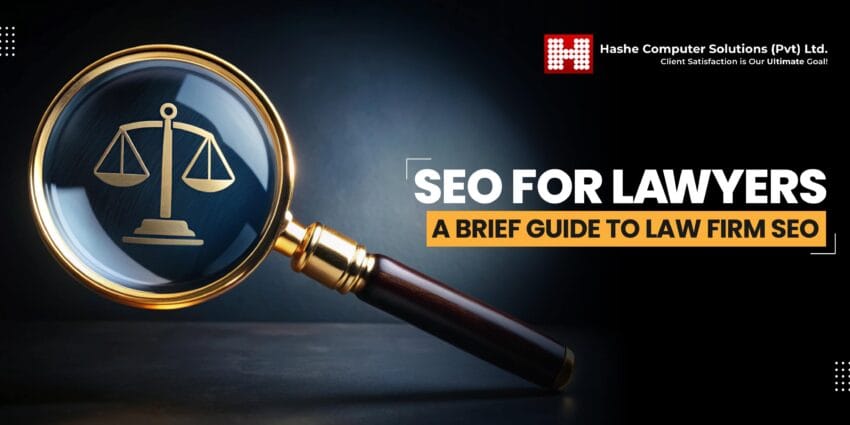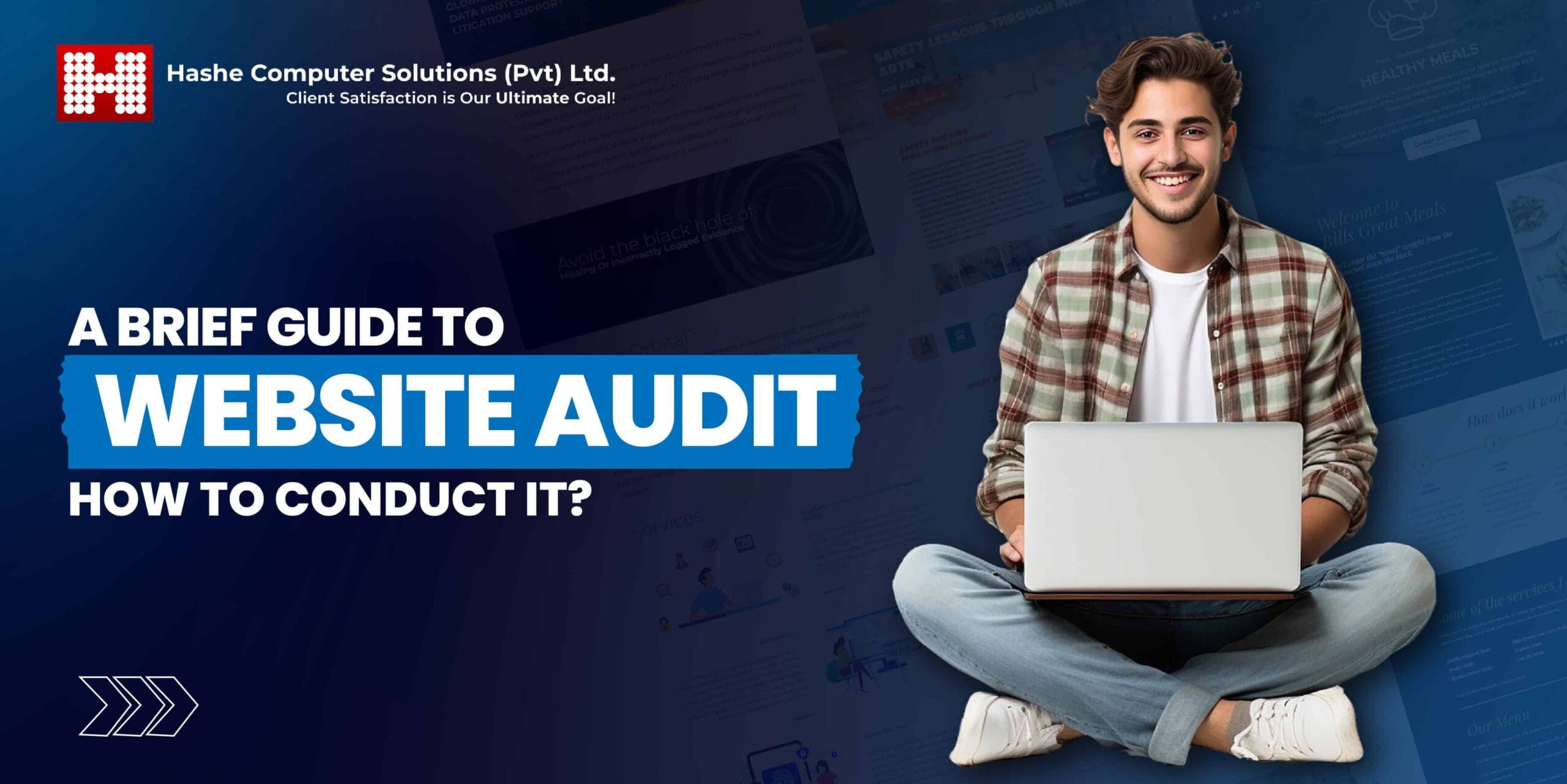
Digitization has transformed people’s lives and the way businesses operate. Today, the internet is widespread, and people turn to their computers or smartphones to look for services they require, making it crucial for businesses to strengthen their online presence. The same is true for the law firms and attorneys.
The legal industry is also experiencing a transformation in how clients seek and select legal representation. The days of using printed directories and word-of-mouth recommendations to find a lawyer are long gone. Potential customers are now using search engines to enter specific legal requirements and expect reliable, relevant results within seconds. Understanding and utilizing Search Engine Optimization (SEO) has become not only beneficial but also essential for visibility, growth, and long-term success for both solo practitioners and legal firms.
Whether you are new to legal SEO or want to improve an already-existing marketing plan, this in-depth guide on SEO for lawyers will help you make sense of things and make your law business more successful.
What is SEO for law firms?
Nowadays, the majority of consumers begin their quest for legal assistance with a quick internet search. Law companies can increase website traffic and, eventually, lead generation by employing SEO methods. This implies that your firm is more likely to show up in the results when prospective clients look for legal services.
The SEO process involves correcting technical issues, creating content, and building links to enhance your domain authority. It helps increase internet exposure, attract more visitors, and eventually turn those visitors into leads.
Ranking on the first page of search engine results (SERPs) is only one aspect of SEO services. Understanding the demands of potential clients and making sure that your law firm’s website provides the desired answers on search engine result pages are the fundamental components of SEO.
The right lawyer SEO and marketing plan can help a firm become successful and stand out in the fiercely competitive legal sector. The first step in this process is to understand and apply technical SEO, which is the cornerstone of raising a law firm’s online visibility in search results.
Why does your legal firm need SEO?
SEO is one of the best ways to attract new clients looking for legal services. It is a more economical and long-lasting method of internet business promotion. Here are the most crucial benefits of this digital marketing strategy.
It attracts more leads.
Law businesses can improve their visibility and attract more prospective clients who are actively seeking their services online by ranking higher in search engine results for pertinent legal terms and queries.
It establishes trust.
A strong internet presence and good search engine rankings help law firms establish their status as reliable and authoritative providers in the field. In the legal industry, where prospective clients frequently focus on reputation and experience when choosing a lawyer or law firm, this can be very crucial.
It improves local search visibility.
Local search optimization is essential for law firms targeting particular geographic locations. Businesses can enhance their visibility and attract more customers from their local area by excelling in local search results.
How to do SEO for lawyers?
The fundamentals of SEO are universally applicable across sectors. However, there are a few special factors that anyone working in the legal industry should be aware of beforehand.
Here is how to do SEO for lawyers.
Keyword and competitor research
Building an effective SEO strategy starts with identifying relevant keywords and keyword clusters. It is particularly valid for SEO marketing for attorneys. When developing your SEO strategy, begin by investigating (and subsequently focusing on) keywords associated with your field of expertise, as well as the regions and specializations of your company.
Consider typical legal search terms that prospective customers may use to find legal services online. For instance, if you are providing legal services in Boston, your keyword list might include queries like “Boston lawyer,” “Boston law firm,” and “Boston attorney.”
However, these are generic and broad terms. They are fiercely competitive, in addition to not focusing on their particular field of expertise. More focused inquiries are preferable, particularly those that highlight your area of expertise, such as “Boston injury attorney” or “Boston divorce attorney.”
Optimize for low-volume, long-tail keywords to increase your chances of ranking high in the SERP and attracting the right customers and prospects. Compared to more popular keywords, these longer, more focused terms typically receive fewer monthly searches. However, they have a greater conversion rate and are less competitive. For instance, you can use long-tailed keywords like “top-rated car accident lawyers near me” or “best-rated accident attorney in Boston.”
Examine your competitors’ top-ranking pages and targeted keywords. It enables you to learn which keyword techniques are most effective for them and how they pull in organic visitors. You might be able to gain a chunk of their traffic by targeting some of their keywords in your own content.
On-Page SEO and content optimization
Building keyword lists is crucial, but keywords are only one component. Creating high-quality content that focuses on adding value for your readers is essential if you want to locate and establish a connection with your clients.
For that, create a content strategy first. Based on your own idea of your legal practice, the typical demands of your clients, and the findings of your keyword research, create a map of pertinent subjects and inquiries. By doing so, you will be able to identify and respond to the queries of your audience.
Here are some of the content and on-page SEO strategies that can help you improve your law firm’s visibility in SERPs.
Practice area pages
Create separate pages for each of your firm’s professional areas (such as divorce, personal injury, and estate planning). Use relevant keywords to enhance the content and the primary SEO components, including title tags, meta descriptions, headings, and URLs. These pages should highlight your knowledge and experience while giving a thorough rundown of the legal services you supply in each field.
Blogs and FAQs
For attorneys who want to optimize their SEO, keeping an SEO-friendly blog with FAQ sections is another highly advised content strategy. It usually helps firms target informational inquiries about the legal field. Additionally, this practice certifies the firm’s or law specialist’s professional qualifications. Informational traffic drawn from blog and FAQ content is simpler to obtain than commercial traffic, which comes through primary service pages.
Case studies and client success stories
Positive client testimonials and successful cases are the best ways to showcase your firm’s capabilities.
Start by including positive client testimonials on your main service pages and homepage. Additionally, let your outcomes do the talking. Make thorough case study pages or blog posts that describe the difficulties, approaches, and outcomes of cases you have represented as a lawyer.
E-E-A-T optimization
Legal SEO success depends on exhibiting E-E-A-T (Experience, Expertise, Authoritativeness, and Trustworthiness). Clients typically turn to experienced attorneys for assistance with critical life matters. Include components on your website that highlight your firm’s expertise, awards, client endorsements, and experience to meet these standards. Add them on important pages such as the attorney bios, practice area pages, and the homepage.
Local SEO
You can elevate your ranking for location-based searches and attract more local clients by optimizing your website for local search. The following are some essential local SEO tactics that can assist law firms in aligning their content with Google’s local search guidelines.
- Include your contact information in the footer of the website and on the Contact Us and About Us pages. Doing so can boost visitor confidence and make it easier for them to locate your contact information.
- Make sure your Google Business Profile (GBP) is up to date. Enter your company’s name, address, phone number, website, hours of operation, and other pertinent details. Make sure your name, address, and phone number (NAP) are the same for all web postings.
- Add your legal practice to pertinent local directories and citation sources, including local business listings and legal directories.
- Create location-specific pages, blog entries, and other information relevant to your company’s local service areas. For example, think about publishing neighborhood, municipal, or state guides on legal subjects or legal news.
- Encourage satisfied clients to give positive feedback on sites such as GBP, Yelp, and industry-specific legal directories. Customer evaluations have the potential to improve your local search exposure and position you or your company as a trustworthy industry participant, even though they are not a direct ranking element.
Technical SEO
Optimizing your website to make it easier for search engines like Google to find, crawl, comprehend, and index your pages is known as technical SEO. It incorporates all of the preparatory work that makes search engines take notice of your website and raises its ranking on search engine results pages.
However, you should consider more than just rankings when optimizing your website. Your primary focus should always be on great user accessibility and positive user experience.
Examine the navigation and footer components first when doing an accessibility audit. Verify that every user may access every element in these blocks. Additionally, ensure that all your links are relevant and have clear anchor text so that users know exactly where they are going when they click.
Verify the webpage’s readability before adding any legal information; don’t use small fonts for copyright or legal content. Additionally, all form fields—particularly the search box—should have labels that are understandable and instructive. Lastly, ensure that alternative text (alt text) descriptions for all images, including icons, are clear and concise.
Here are some technical SEO best practices to help you optimize your law website.
- Perform regular website audits to identify and resolve technical issues that may impact your performance. For example, you could set up a monthly or biweekly rapid audit routine to detect minor errors early and perform more in-depth website evaluations once a quarter.
Read this article to learn more about the critical issues that you may find during the website audit: A Guide to Common SEO Mistakes that Hurt Rankings. - Users won’t wait for your website to load if it takes several seconds. Most likely, they have already left your website. Tools such as PageSpeed Insights help evaluate the page speed of your website.
Always compare mobile and desktop speed performance individually, as layouts and designs change dramatically between large and small screens. It directly affects the load speed. Additionally, mobile connections can differ depending on the geolocation, implying the speed and functionality of your website may vary between desktop and mobile devices. It’s also important to remember that Google prioritizes mobile devices when indexing. Website speed should be on your SEO checklist since it is a proven ranking factor. - Test your website across a range of screens and devices to ensure all the content and elements (including buttons and forms) are accessible and clickable. Users will leave if they are unable to see content or click buttons.
- Keep a close eye on the health of your website, particularly after making adjustments in response to the results of a website audit.
Off-page SEO
“Off-page” refers to a collection of actions taken outside of your website to improve its ranks. That said, building a website’s legitimacy and significance outside of your domain is known as off-page SEO. Backlinks are a crucial indicator of a website’s authority, which is why it’s imperative to concentrate on them.
Linking to you from other websites tells Google that your content is useful, trustworthy, and valuable. Your website is more likely to rank higher if it consistently receives backlinks from reputable domains, which increases its authority. Obtaining backlinks and mentions also increases referral traffic and brand awareness.
Here are a few off-page strategies that can help your law firm rank higher in SERPs.
Digital PR campaigns
An effective digital PR strategy is helpful in enhancing online visibility, obtaining relevant backlinks, and establishing your law firm or personal brand as a credible and authoritative source in the industry.
Showcasing your legal knowledge and abilities and pitching these content pieces to appropriate media outlets can help you make the most of your digital PR campaign.
HARO backlink
Share your experience using knowledgeable quotes or remarks to establish yourself as an experienced attorney with a noteworthy professional background. These quotes might be about market trends, court rulings, or noteworthy incidents.
When looking for professional perspectives, consider contacting bloggers, journalists, and online publications. Platforms like HARO can also help you build significant backlinks to your website and raise brand recognition.
Guest blogging
Posting your articles on other websites is known as guest blogging. Making a list of content topics to share your expertise on, identifying targeted websites, contacting them, negotiating a partnership, and delivering a ready-to-publish content piece are all simple steps in the process. Include relevant backlinks to your website in your writing to position yourself as an authority in the area.
Social media marketing
Being active on social media can help you or your company become an authority in your field. It indirectly helps with SEO (by improving brand visibility and exposure) and drives leads straight to your website or social media accounts.
More precisely, you can offer critique, analysis, or professional viewpoints via social media platforms like Facebook, LinkedIn, or X. You have a better chance of getting social shares if you consistently post engaging content. Your material can spread like wildfire when someone shares it, expanding your audience. Furthermore, it will increase the likelihood that other websites will link back to your post, further enhancing your credibility.
Implementing SEO for Lawyers: Strategies
Now that you’ve learned the foundations of lawyer SEO, the next thing to know is how to apply them.
Perform SEO yourself
The process of improving the SEO of your legal website can be difficult and time-consuming, particularly if you have never done SEO before. Although it is feasible to complete the SEO cycle on your own, this is generally not the best use of your legal resources.
Consider employing an internal SEO expert instead. Having an SEO specialist on your team might increase your visibility in relevant search engine results pages.
Proceed carefully if you’re still determined to manage SEO on your own. Start by finding specialized SEO software. Utilize the data the software collects to carry out each of the SEO procedures outlined in this article.
Hire a law firm SEO company
Hiring a marketing firm that specializes in SEO for law firms is the most straightforward and popular method of performing lawyer SEO.
Search for the top digital marketing agencies. You can choose the best one by visiting their website and exploring the detailed information, including client testimonials, their history, case studies, SEO methodology, pricing, and so on.
Hashe Computer Solutions is one of the leading web development and digital marketing companies with skilled and experienced SEO professionals and a proven track record. We can help your law firm website rank higher in SERPs, driving organic traffic and positively steering your company towards continued success and growth. Contact us to learn how we can help you!
Conclusion
Legal websites can increase their traffic, leads, and conversions by using law firm SEO, which offers them a competitive edge.
The legal profession is highly competitive, so if you want to rank well in search engine results, you need a strong digital marketing plan.
Getting active on social media, optimizing for E-E-A-T, concentrating on local SEO, and monitoring outcomes to know what works are some ways to achieve this.
Contact Hashe Computer Solutions for Free Website Audit Today!
Don’t worry if all this SEO stuff seems daunting; you don’t have to do it by yourself. At Hashe, our expertise lies in assisting companies in understanding and improving the SEO of their websites. Whether you want to boost your rankings, tackle any technical issues, or simply get a better grasp of your current audit report, we’re excited to assist you! What’s the best part? To get you started, we provide a free website audit. Let us work together to take your website to the next level!
Are you looking for the best IT providers for your IT projects? Look no further than Hashe! Hashe Computer Solutions is a leading IT solutions provider that offers world-class software, mobile application, web development, and digital marketing services. Contact us for the best web design and Digital Marketing solutions!
Was this helpful?
Last Modified: August 28, 2025 at 12:30 pm
85 views















